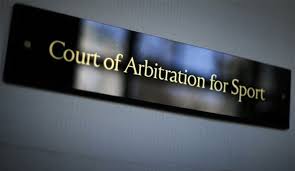May 14 – Darwin Núñez will miss Uruguay’s next three World Cup qualifiers after the Court of Arbitration for Sport (CAS) upheld Conmebol’s disciplinary sanctions stemming from the chaotic post-match altercation involving players and fans during the 2024 Copa América semi-final against Colombia.
The CAS ruling brings an end to the Uruguay Football Association’s (AUF) appeal, which argued that Núñez and four other senior players acted in self-defence to protect their families in the stands of Charlotte’s Bank of America Stadium on 10 July 2024. The tribunal rejected that claim, stating that the players’ conduct was “voluntary, violent and unjustified,” and in violation of Conmebol’s disciplinary code.
Núñez, who had served two of a five-match suspension before CAS granted a temporary reprieve in October 2024, will now be forced to sit out qualifiers against Paraguay (home) and Venezuela (away) in June, as well as the match against Peru in September. He was also fined $20,000. The CAS ruling means the remaining three matches of his ban must now be served in full.
The original sanctions, handed down by Conmebol in August 2024, also affected four other key Uruguay players. Tottenham midfielder Rodrigo Bentancur received a four-match suspension and a $16,000 fine. Barcelona defender Ronald Araújo, Atlético Madrid centre-back José María Giménez, and Napoli’s Mathías Olivera were each handed three-game bans and fined $12,000 apiece.
All four completed their suspensions last year, but the AUF’s failed appeal to overturn or reduce those penalties underlines the severity with which Conmebol – and now CAS – have treated the incident. Seven additional Uruguay players were fined $5,000 each, although they did not receive match bans.
The melee erupted in a section of the stadium where many Uruguay players’ families, including small children and newborns, were seated. Núñez was seen climbing into the stands and physically confronting Colombian fans, sparking scenes that Giménez later described as defensive.
“There was no police and we had to defend our families,” Giménez said in the aftermath. “Our families were in danger. We had to rush into the stands to remove our loved ones with tiny newborn babies.”
Uruguay coach Marcelo Bielsa at the time publicly backed his players, saying: “This is a witch hunt. The players reacted as any human being would have done.”
Despite that defence, CAS found the principle of self-defence did not apply in this case, marking a significant precedent in how football’s disciplinary bodies may handle fan-player clashes in the future – even when players claim they acted to protect family members.
The loss of Núñez, in particular, is a blow for Uruguay’s World Cup qualification campaign. The Liverpool striker had become a key component of Bielsa’s attacking plans, and his absence – alongside the backdrop of disciplinary instability – will test the resilience of a squad still reeling from last summer’s controversy.
Uruguay’s next six qualifiers include crunch fixtures not only against Paraguay, Venezuela, and Peru, but also October and November matches against Ecuador and Colombia.
Contact the writer of this story, Harry Ewing, at moc.l1749710042labto1749710042ofdlr1749710042owedi1749710042sni@g1749710042niwe.1749710042yrrah1749710042

